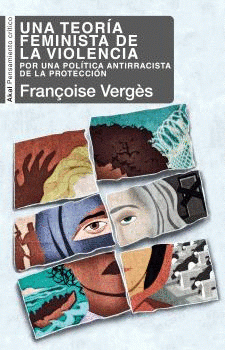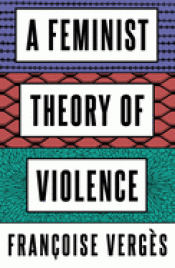Para envío
El lenguaje oficial sobre la igualdad de género es un repertorio de violencia: acoso, violación, abuso, feminicidio. Estas palabras designan una cruel realidad, pero ¿no ocultan otra realidad, la de la violencia cometida con la complicidad del Estado?
En este libro, Françoise Vergès denuncia el giro de la seguridad en la lucha contra el sexismo. Al centrarse en los «hombres violentos», no se cuestionan las fuentes de esta violencia. No hay duda, el capitalismo racial, el populismo ultraconservador, el aplastamiento del Sur por las guerras y el saqueo imperialista, los millones de exiliados o la escalada carcelaria ponen las masculinidades al servicio de una política de muerte. Vergès nos insta a rechazar la obsesión punitiva del Estado en favor de la justicia reparadora.
Una comprensión decolonial y feminista de la violencia nunca ha sido tan obligatoria como hoy para imaginar futuros de liberación.
«En este contundente desafío decolonial al feminismo carcelario, Francoise Vergès aclara por qué es necesario un enfoque estructural de la violencia. Si queremos entender cómo el capitalismo racial está vinculado a la proliferación de la violencia íntima y estatal dirigida a las mujeres y a las personas que no se ajustan al género no debemos dejar de leer este oportuno análisis». Angela Y. Davis (University of California)
«Françoise Vergès ofrece una impresionante reflexión sobre la banalización de la agresión. Violencia sexista, sexual y racial. Más que una realidad: un sistema». Clément Arbrun, Terrafemina
«La escritura incandescente de Vergès arroja luz sobre las desigualdades globales, los brutales sistemas carcelarios, la militarización sin límites y las ideologías punitivas que dan forma a las intimidades violentas». Laleh Khalili (Queen Mary University of London)
«Una llamada a unirse a la urgente labor feminista decolonial de repensar las prácticas de la (llamada) protección fuera de las lógicas de la violencia. Tenemos la capacidad, insiste Vergès, de promulgar una sociedad posviolenta, de hacer realidad otro mundo». Christina Sharpe (York University)
«Una hoja de ruta de imaginarios emancipatorios radicales para dar forma a un cambio social y político urgente. Los argumentos de Vergès surgen de la base, de la experiencia vivida de la disidencia, la acción y la movilización contra las heridas y los daños infligidos por el capitalismo extractivo en todo el mundo». Rasha Salti (comisaria de arte y cine).












